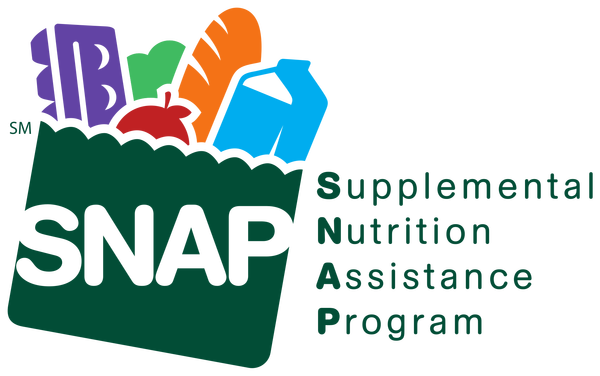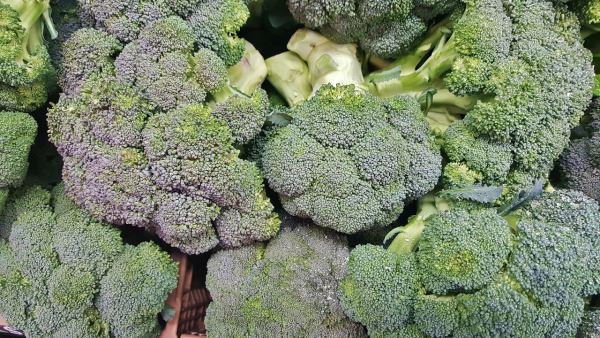SNAP, the acronym for the Supplemental Nutrition Assistance Program and historically known as the Food Stamp Program until the 2008 Farm Bill, is one of those government programs that seems endlessly controversial.
A couple common misconceptions:
First, many SNAP recipients, usually people of color and non-citizens, are fraudulently buying vodka and cigarettes with tax-funded benefits. Or if they are buying food, its pure junk.

Meanwhile, recipients are staying enrolled in the program for decades, even a lifetime, as who wouldn't want to have "free" money to buy all their household's food?
In 2016, there's a debate about whether SNAP participants can order food over the Internet and some concern. And in 2017 and beyond, there's a potentially massive controversy brewing with the slim possibility that SNAP funding will be made separate from the end-of-decade Farm Bill and/or block granted to the states. SNAP, and the more than 45 million people across the U.S. including more than 3 million Floridians who participate in the program, just can't seem to ever enjoy a moment's peace.
In this posting, I want to counter punch with the many good things about SNAP.
Let the unpacking begin.
A profile on snap participants
First, who participates in SNAP? According to a December 2014 report prepared for the USDA's Food and Nutrition Service by Mathematica Policy Research, the plurality of SNAP clients is White.
Meanwhile, eligibility is extended "only to permanent residents legally present in the United States for at least five years, legal immigrant children (under 18), the elderly and disabled who were legally resident before August 1996, refugees and asylees, veterans and others with a military connection, those with a substantial history of work covered under the Social Security system, and certain other limited group of aliens." (More info in a SNAP Primer on eligibility and benefits here. And check out "9 myths and facts about SNAP benefits and immigrants" here.)
What SNAP participants are (and aren't) buying
Now what about that vodka and cigarettes? Well, you can buy breads and cereals; fruits and veggies; meats, fish, and poultry; and dairy products. You can also buy seeds and food-producing plants and interestingly, 16% of Floridians seeking food assistance grow their own food, a 2014 study found. But sorry, you can't purchase alcohol or tobacco products or non-food items.

A study just released by the USDA in late November found that the differences between the expenditure patterns of SNAP and non-SNAP households were "relatively limited" as food choices were similar. Sadly, both groups aren't making choices consistent with the Dietary Guidelines for Americans and obesity remains especially problematic among SNAP participants as this research indicates.
With that said, a higher rate of obesity shouldn't necessarily mean the program should be gutted. Rather, why can't we look at deeper investments in nutrition education (for all Americans) or "carrot-and-stick" approaches that help SNAP participants make healthier purchases (though a position I don't necessarily endorse). And keep supporting farmer's markets in Florida that incentivizes SNAP participants to buy fresh fruits and vegetables (and support local, small farms along the way.)

But regardless of who's participating in SNAP, isn't fraud a problem? No. Unless, that is, you're losing sleep over a 1.3% fraud rate (down from more than four percent in the 1990s).
The impermanence of SNAP participation
Now what about the notion that people use SNAP for decades? Before we dive into that, let's also recognize that the average monthly SNAP benefit in Florida is $129 per person or $237 per household (less than Alabama, by the way). Indeed, the S word here is "Supplementary."
Now how long do people participate in the program? Longer than I thought but certainly not a lifetime. And in Florida, the state legislature has significantly narrowed the eligibility period for some adults.
A Few Concluding Thoughts
In October, I had the good fortune to attend the annual conference hosted by the Tampa Bay Network to End Hunger at the University of South Florida and hear its keynote speaker, Dr. Craig Grundersen from the University of Illinois, speak on food insecurity.
If anyone can speak about what helps and what doesn't help low-income folks experiencing food insecurity, its Dr. Grundersen. And looking over my notes from his talk, two quotes from him jump out:
"Make SNAP better" and "Food assistance programs begin and end with SNAP."
If I can be forgiven in these (at best) uncertain political times for feeling a bit hopeful, I'd like to point out that it wasn't too long ago that there was a very strong, bipartisan support for SNAP. In the 1970s, Senator Bob Dole (a longtime Republican Senator from deep-red Kansas who today enthusiastically supports President-elect Trump) and George McGovern (the leftie, Democratic Senator from South Dakota who ran for President in 1972 as the voice for the radical counterculture) collaborated on legislation to increase access to the program).
So perhaps it is time we stopped playing politics as usual with hunger and SNAP, stop talking about reducing benefits for those who need it, connect and unite those in both urban and rural America, and work together (gasp!) to find ways, like good ole' Dole and McGovern.

--David Vaina is the Senior Director of Marketing, Communications & Brand Strategy at Treasure Coast Food Bank. His views here do not, in any way, reflect those of the Florida Food Policy Council or Treasure Coast Food Bank.